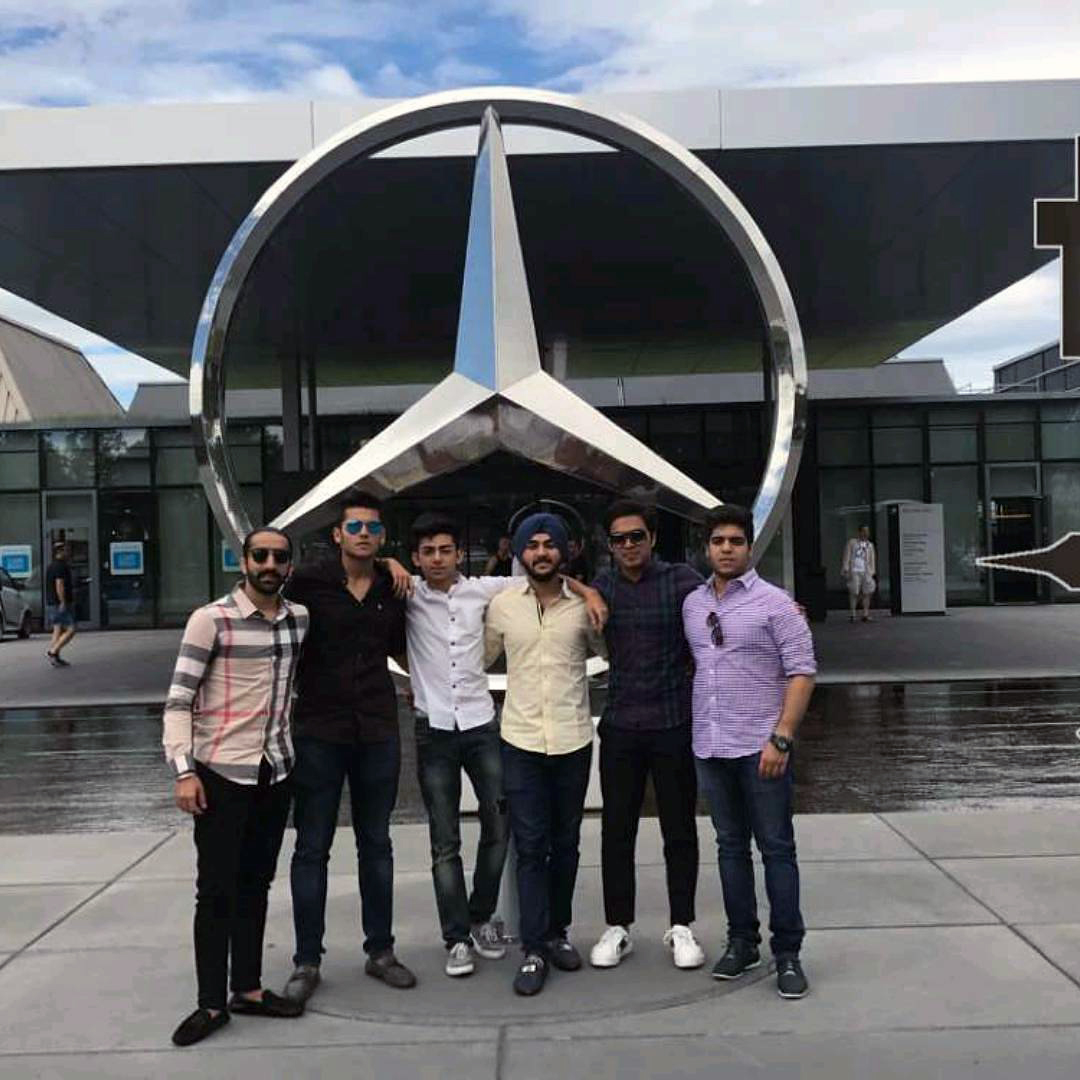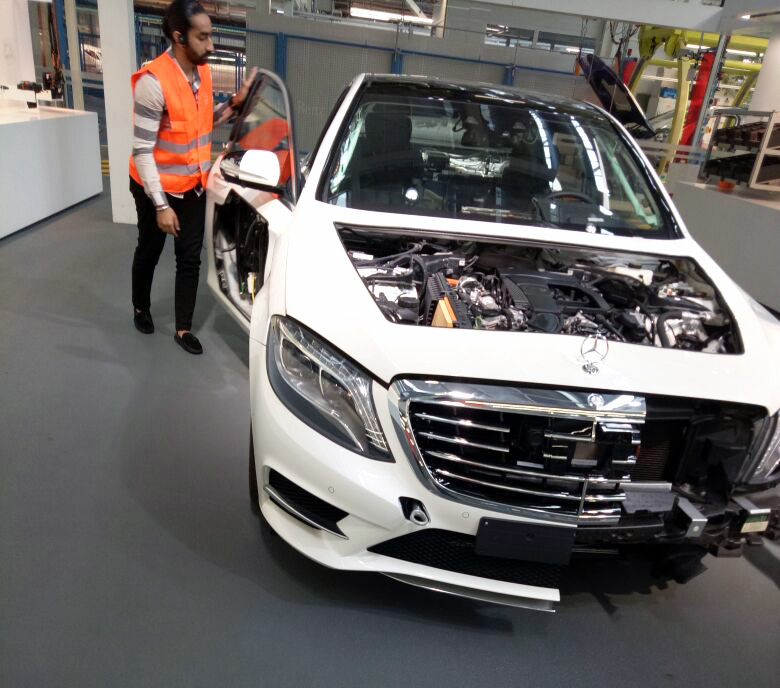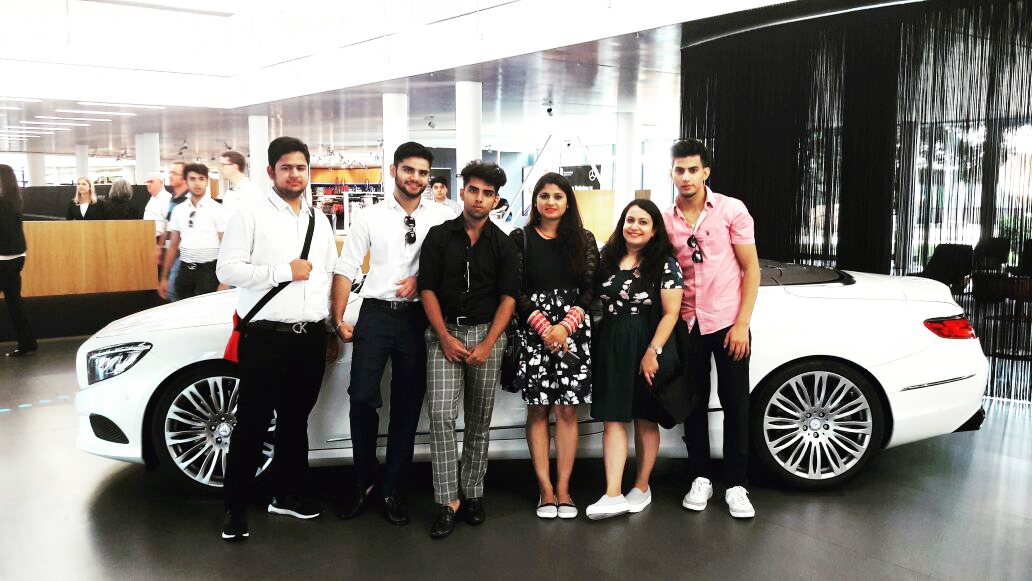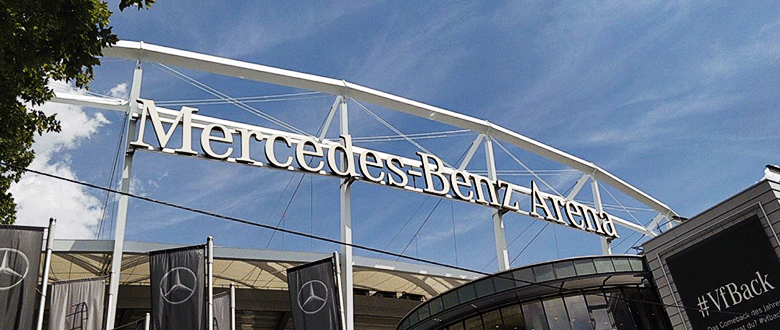An IILM Undergraduate Business School leader steps out to explore what lies beyond the familiar, to develop a well-rounded perspective. It is with this aim that as a part of unique BBA curriculum the college takes its students for Global Study Program every year to provide them an experience which is unmatched, in terms of global exposure and lateral thinking.

The IILM BBA students tour Canada or Europe as a part of its Global Study Program to avail of the unique opportunity to study in a global environment and learn holistically. During the BBA study tour, our students visit industries to understand the functioning of the units and also experience the local festivities of the area.
This year we visited the Mercedes-Benz Headquarters in Stuttgart, Germany on 3rd August, 2017, as a part of our Global Study Program. The gigantic and ultramodern Mercedes Benz Headquarters in Stuttgart-Untertürkheim displays a huge collection of historic vehicles owned by the world’s oldest automobile manufacturer. In addition to cars, the headquarters also displays trucks, buses, experimental vehicles, and racing cars built by Mercedes Benz. I was leading the group with one of my colleagues Ms. Nidhi Piplani.

Germany in general and Stuttgart in particular are synonymous with the purr of meticulously engineered motors and the sheen of polished chrome. Audi, BMW, Mercedes-Benz, Porsche, and Volkswagen all popped up on the world map from this central European country, and Stuttgart may very claim the honour of being the origin of two such highly regarded automobile manufacturers. Car enthusiasts certainly covet the opportunity to spend some time in the cutting edge state to feast on the sight of the enviable, antique vehicle collections on display at the world renowned Mercedes-Benz Headquarters and Porsche Museum. We visited both, Mercedes-Benz Headquarters and Porsche Museum.

Almost three times the size of the famous Porsche Museum, the Mercedes-Benz Headquarters majestically spotlights the 125 years of magnificent automotive history throughout its nine intertwining levels. The building design was inspired by the form of a DNA double helix; its layout mind-bogglingly twists. With well over 1500 exhibits and 160 vehicles on display, visitors to the building are transported back in time as they slowly spiral their way through galleries highlighting the world’s very first motorized vehicles. Then they move to the bottom level of the renowned building where the contemporary Mercedes-Benz awaits its recognition.

Overall, the industry visit to the Mercedes-Benz Headquarters as a part of our this year’s Global Study Program gave us an opportunity to actually see and experience for ourselves the application of the theory which we study in the classroom. This tour enriched the students and the faculty member who felt that it was a lifetime experience. This is what makes IILM UBS a top BBA college with a remarkable difference!




